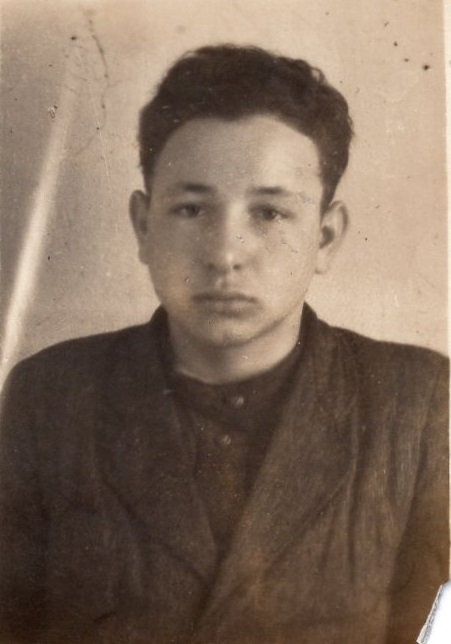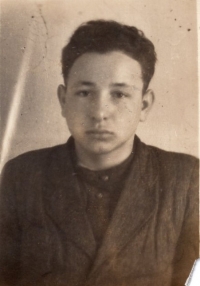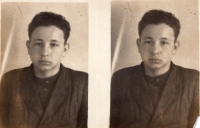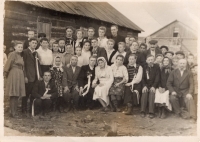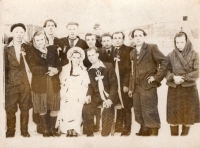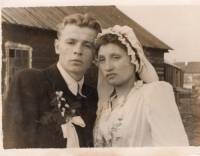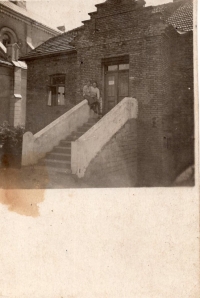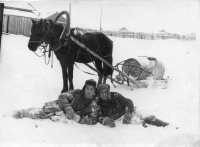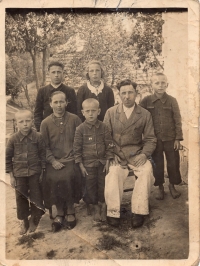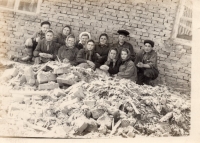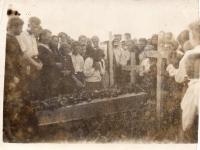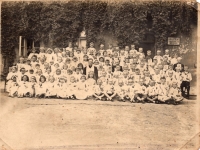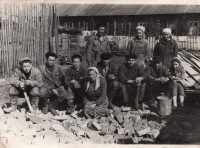"Petro was the eldest, 27th year. When leaving Poland, when leaving for Basznia, to the station Basznia... And so they, well, he went there to Molodiv to take piglets, and also to take a chaff-cutter. And take a chaff-cutter. So they took it, they went with a grandfather, the grandfather Pokhoday was still alive, he was like my grandfather. Like that. They went to Molodiv, took that chaff-cutter, took the piglet from there. And when they were about to leave the village, there were already almost on the edge of the village. The Poles approached, stopped them, come, he says, to this, to the village council. That was their rule, so, to get there. And he thinks, "So if I go there, they'll see my beautiful horses." they wanted to take those horses. [...] And he gave it a thought, a thought, "I'll get away with the horses." He quickly turned away, turned away, and escaped. He took the paved road and escaped to the Basznia, where we, where we were evicted there, we were already there, everyone. There they made those booths, to cover from the rain, to cover everything. And they thought that he should already be there, (meaning not clear), and they quickly moved forward, in front of him, and wanted to сut him. Because he went there, and they were on the other side of the road. Immediately they came here, and he was riding the cart in front of them. And then they started shooting at him. They were shooting, to tell the truth, they didn't even kill the horses, nothing. And he just, he fell on the cart. And he was not injured, and not only needed [...] They just hit his blouse with their bullets, and he immediately, at once, you know, jumped in a ditch, and continued moving along the ditch. And they could not catch him there. And he took the turn, he quickly took that turn. Like that. And ran away from them. On the second day, those Poles came, they came to where we were, to those huts. They came to those horses and zap zap. They were stroking those horses. And at that moment our guys came. Somewhere, they were somewhere nearby and came in, they came in behind that hut just where we were sitting, they came in there. There was one family, then the second, then the third, then the fourth. Everyone was located there. And those guys came here, and they looked, and said, "Why did they come here," they say, "why did they arrive here?" "Well, the Poles came, they probably want to take those horses." You know. They want to take those horses. They came and they kept stroking those horses. And the two guys that came in, they were already older. They came to them and said, "So you want those horses?" And they took them (the Poles) away, they were armed, you know. And they took the Poles away, took the, somewhere. And no one knows where they took them. Nobody, nobody, nobody told us anything. Maybe they shot the Poles somewhere in the forest, or not, I was not told anything. Oh, and those horses were left with us. Because one foal was 1 year old, and another foal had 3 years, those horses, that was the time."
